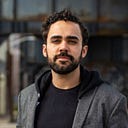Member-only story
The Kind of Ocean Farming That Will Help Combat the Climate Crisis
After the failures of big aquaculture, it’s time we listen to our oceans
Fish farming has a bad reputation, for good reason. It’s built on systems that cheat nature by raising fish in unsafe conditions — often harming entire ecosystems and consumers’ health.
The farming of bivalves and sea greens is quite literally doing the opposite: Bivalves, such as mussels, oysters, clams, and scallops, along with seaweed, require zero feed, fertilizer, or antibiotics. That they generally stay put is better for ecosystems.
“Farming bivalves and seaweed is possibly the most sustainable harvest we have from the sea,” said Ryan Bigelow, seafood watch senior program manager at the Monterey Bay Aquarium.
Both bivalves and seaweed filter out contaminants from the waters they consume, breathing life back into our oceans. A single oyster can filter upward of 50 gallons of water a day, which adds up exponentially when accompanied by an entire reef.
In recent years we have seen breakthroughs in fish-feed alternatives, typically composed of plant proteins, which can drive genetic manipulation and behaviors, even converting certain species from carnivores to omnivores. While this trade might seem efficient…

